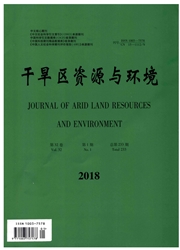

 中文摘要:
中文摘要:
运用突变级数模型,对北京市旅游产业系统和城市基础设施系统的发展水平进行了评价;借助耦合模型,分析了旅游产业系统与城市基础设施系统发展之间的耦合协调关系。结果发现:北京市旅游产业发展水平从波动状态向稳定状态转变,基础设施发展水平从快速上升向缓慢上升转变;北京市旅游产业和基础设施耦合度的时序变动表现出明显的阶段性和波动性,并且可以分为2001-2004耦合协调关系的波动阶段和2005-2011年耦合协调关系的缓慢上升阶段;耦合协调关系实现了从2001-2005年失调阶段到2006-2010年协调阶段的转变;突变级数理论在研究城市旅游产业与基础设施耦合协调关系等方面具有一定的适用性,在旅游产业相关评价中具有一定的应用潜力。
 英文摘要:
英文摘要:
With the help of the catastrophe progression model, we evaluated the development of the tourism industry and urban infrastructure, and the coupling model was applied to analyze the coupling coordinative development relationship between the two systems of Beijing from 2001 to 2011. The results show that: ( 1 ) From 2001 to 2004 the comprehensive development level of tourism industry in Beijing was in the state of fluctuation, comprehensive development level of infrastructure was in the fast rising stage, and from 2005 to 2011 the comprehensive development levels of tourism industry and infrastructure were in the slowly rising stage. (2)From 2001 to 2004 the coupling coordinative development relationship between the two system was in the state of fluctuation, and from 2005 to 2011 it turned to be in the slowly rising stage. (3) Coupling coordinative development relationship achieved the transition from the imbalance stage from 2001 to 2008 to coordinative stage from 2008 to 2011 . (4) Because of the lag of tourism industry, Beijing need to change its tourism development pattern pressingly.
 同期刊论文项目
同期刊论文项目
 同项目期刊论文
同项目期刊论文
 期刊信息
期刊信息
